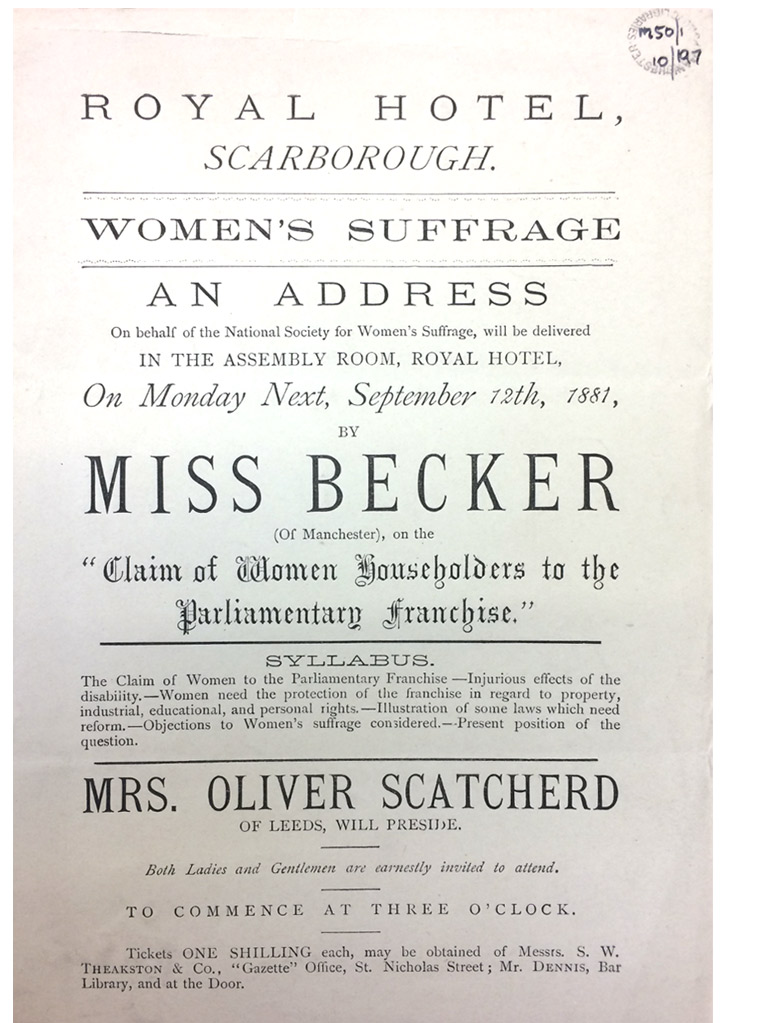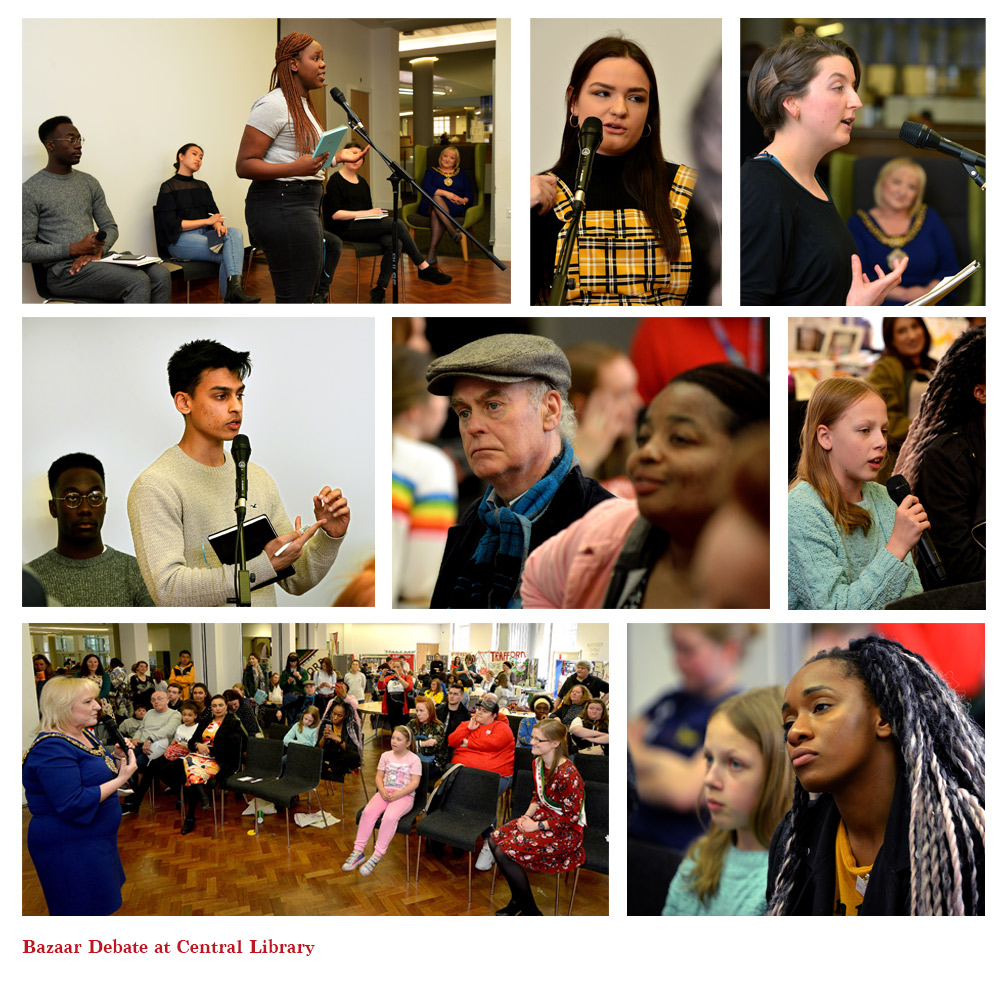
Debating and Speeches
Campaigning for women’s liberation was no mean feat in the early 1900s. Those that opposed women’s suffrage already had the benefits of a political system that only allowed men who owned property to vote (58% of men over 21).
Equal suffrage, therefore, could threaten that wealth as policies would have to appease the working classes e.g. A mill owner might have to spend more money to improve working conditions in his mill which would eat into their profits. Anti-Suffragists were also well organised and had their own marketing strategies. As can be seen from this small collection from Archives+, Manchester Central Library, they produced cartoons mocking suffrage campaigners, distributed their own literature and journals and fundraised bringing large financial contributions from donors.
What distinguished the suffragists from the suffragettes was how they interacted with their political opponents. While the suffragists might vandalise and disrupt their opponent’s livelihoods, the suffragists would engage in debates with the anti-suffragist league. This was a risky strategy. If a debater in favour of equal suffrage was to fail, all the event would have achieved is giving a platform to the anti-suffragist cause. The suffragists seemed to produce a pool of very talented speakers. Lydia Becker, one of the first suffragists, was exceptional in giving debates and speeches in favour of women’s suffrage and toured the country doing so.
The Game Changer groups received debating training from the Debate Mate Team (www.debatemate.com). Debate Mate is a not for profit organisation that trains University students to become peer mentors who then deliver debate workshops for some of the most disadvantaged school pupils in the UK. The sessions included:

• Introduction to making arguments
• Speaking stylistically
• Structuring arguments
• Responding to arguments and quick-thinking
• Roles in a debate, the format, and judging
Same as the suffragists, one of the key elements covered in these debating workshops, was the importance of was showing respect for the debate opponent but having the tools to be able to undermine and dismiss their position.
The Debate Mate mentors then held a mock debate at the Bazaar event on the issue of education where the audience members were able to interrogate statements made by the debaters and even the Mayor of Manchester joined in! This replicated the many debate events that the suffragists hosted.

